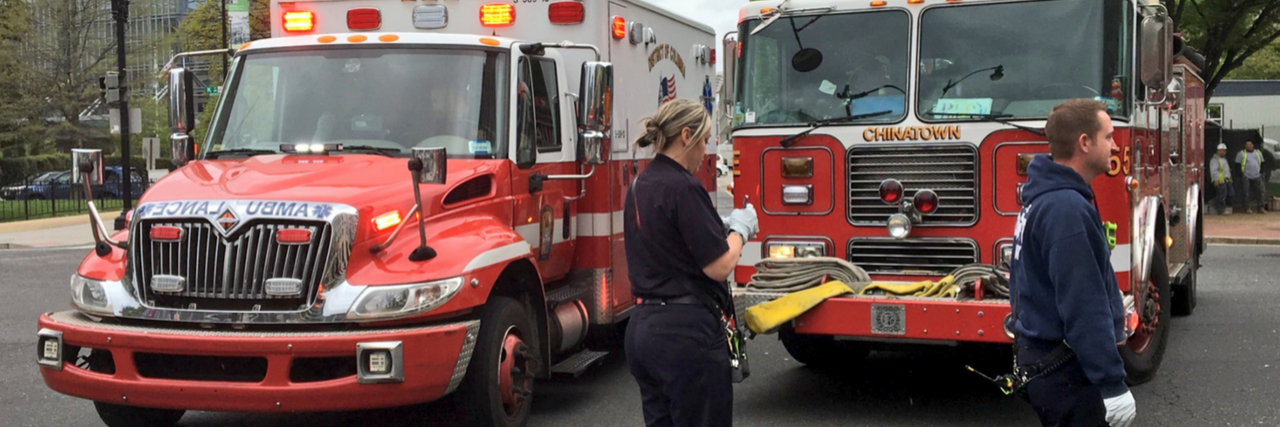Washington D.C. 911 Dispatch Now Includes Triage Nurses to Redirect Non-Urgent Cases from the ER
Making the decision to go to the ER isn’t always black and white, especially if you have a chronic illness or live with chronic pain. You might ask yourself if the pain is actually bad enough to go to the ER or could the issue wait for a phone call to your doctor tomorrow? Now, a triage nurse working with 911 dispatchers may be the one making that decision.
In Washington D.C., a triage nurse now works alongside 911 dispatchers to take calls about medical emergencies. If someone calls 911, the caller will first talk to a dispatcher, who may transfer the call to the triage nurse if the call is deemed by an algorithm unlikely to be an immediate emergency.
The goal of the triage nurse is to place callers with non-emergencies in more appropriate places like urgent care, community clinics or follow-up appointments with their doctor. Non-emergency calls could include a sprained ankle, a minor cut or a viral infection like the common cold.
Once the nurse decides what type of treatment a caller needs, the nurse can then give the location of a clinic. If the caller is a Medicaid-recipient, the nurse can coordinate a free ride with Lyft to the clinic and a pharmacy after the visit if needed. The Right Care, Right Now program is used every day from 7 a.m. to 11 p.m. 911 Calls before or after these hours will be given to dispatchers.
“I do know how much of a sense of calm I feel when I speak with a medical provider versus someone that simply works in a hospital or medical office,” Kat Harrison, a member of The Mighty’s chronic illness community, said.
For instance, there is a huge difference in speaking to the receptionist at the ER who typically hands you generic paperwork and reviews your insurance information versus entering that triage station, where there is likely a nurse who can briefly note and evaluate your symptoms. I feel like having nurses as a part of the 911 process can only help (with a few caveats) in assuring that patients receive the most accurate and differentiated care that they need.
One caveat Harrison mentioned is how the new system would affect people with chronic illnesses. It isn’t uncommon for people with chronic illnesses to use the ER during flares. If someone with a chronic condition goes to the ER frequently, they are sometimes accused of being “drug-seeking” or “attention-seeking.” Sometimes, they’re labeled as frequent fliers and aren’t taken as seriously as other patients.
“My primary concern is if a nurse was to deem a patient’s health concern as a non-emergency and that therefore results in not sending an ambulance, and the patient further suffers, or worse, dies,” Harrison said. “I feel like this system is best suited for patients who are able to be their own advocates and who are able to self-triage in a way that alerts a nurse to send the appropriate type of care.”
Doug Buchanan, chief communications officer for DC Fire and EMS Department, told The Mighty calls that fall into a “gray area” or calls that cannot be confirmed as non-urgent would typically still be transported to the ER. This would include people with chronic conditions who may be experiencing a higher level of pain or concerning symptoms.
The implementation of a triage nurse is a part of D.C.’s Right Care, Right Now program, which works to connect people to providers and community clinics in the area. Approximately 70 percent of Medicaid recipients in D.C. do not have a primary care provider and D.C. has the highest call volume per capita in the country.
Ways to prevent “overuse” of emergency rooms and cut costs isn’t new. Anthem Blue Cross/Blue Shield has started to deny claims in some states for emergency room visits for visits deemed non-urgent.
Photo via Twitter/@dcfireems

